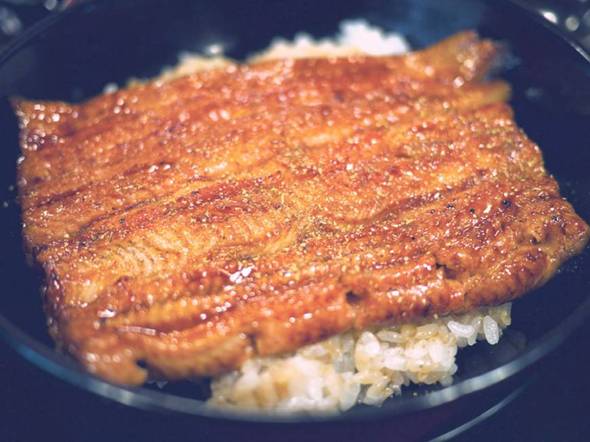Posted on The Japan Times
http://www.japantimes.co.jp/life/2013/06/28/food/watch-your-summer-food-pairings/

Energy boost: Though it’s traditionally believed that you shouldn’t eat grilled eel with pickled plums, there’s actually no scientific evidence that it will give you indigestion. | MAKIKO ITOH
I’ll never forget that day during the summer when I was 14. I’d been away in the Yatsugatake Mountains of Honshu with my schoolmates for a rinkan gakkō (a multi-day school trip to the countryside), and on the way back we’d stopped for lunch at a large roadside diner. On the menu was tempura, followed by slices of watermelon. The breakfast at the inn we were staying at was pretty awful, so I dug into my one shrimp and mound of fried vegetables, as well as the sweet, chilled watermelon. But that evening, my body started to complain very emphatically. My stomach felt like it was being twisted around inside. I rolled around on the floor, groaning in pain, for what felt like hours. By the morning the pain was finally gone, but I was weak and worn out for days.
As it turns out, I’d indulged in a classic bad food combination, or tabeawase. Called gasshokukin or shokugōkin, these are foods that are not supposed to be eaten with each other for health reasons, especially during the summer when the grueling heat and humidity take a toll on our bodies. It’s a way of thinking about food with roots in traditional Chinese medicine combined with old-school common sense.
The best-known bad food pairing is unagi (grilled eel) with umeboshi (salt-cured ume plums), both of which are classic summertime foods. Oil-rich unagi give you lots of energy, and the sourness and saltiness of umeboshi help to awaken a lagging appetite. But we’re warned never to eat them together, since the sourness of the umeboshi will clash with the oiliness of the unagi, causing digestive problems.
According to current medical knowledge, however, there’s no scientific basis for this belief. On the contrary, the sourness of the umeboshi should actually help our bodies deal better with the fatty unagi. One reason this pairing may have become a “no-no” is as a warning against gluttony: Unagi has always been a luxury food, and if you have it with salty-sour umeboshi you might be inclined to eat more than you should.
Most of the other bad food pairings that we’re encouraged to avoid are combinations of not so easily digested foods with something that’s cold and watery. The combination that caused me so much grief as a teenager is a classic example. Deep fried food such as tempura puts a burden on the stomach, so topping it with ice water and cold watermelon is not the best idea. Other bad combinations involve foods that aren’t that easy to digest on their own, such as tokoroten (agar-agar noodles) with raw eggs, or crabmeat and persimmons.
What you should try very hard to avoid as the weather gets really hot and humid, however, is relying on too much cold or cooling food. If you are only eating salads, hiyayakko (chilled tofu), cold somen noodles and ice cream every day, then downing iced drinks and cold beer — you may think you’re keeping cool. But, paradoxically, too much cold and watery food prevents your body from activating its best cooling system: perspiration.
Have some hot food or a spicy dish every once in a while. That will get your system revved up. And enjoy some grilled unagi for a classic Japanese energy boost at least once this summer — with or without umeboshi.
_ _ _ _ _ _ _ _ _ _ _ _ _ _ _ _
Original article available here:
http://www.japantimes.co.jp/life/2013/06/28/food/watch-your-summer-food-pairings/
